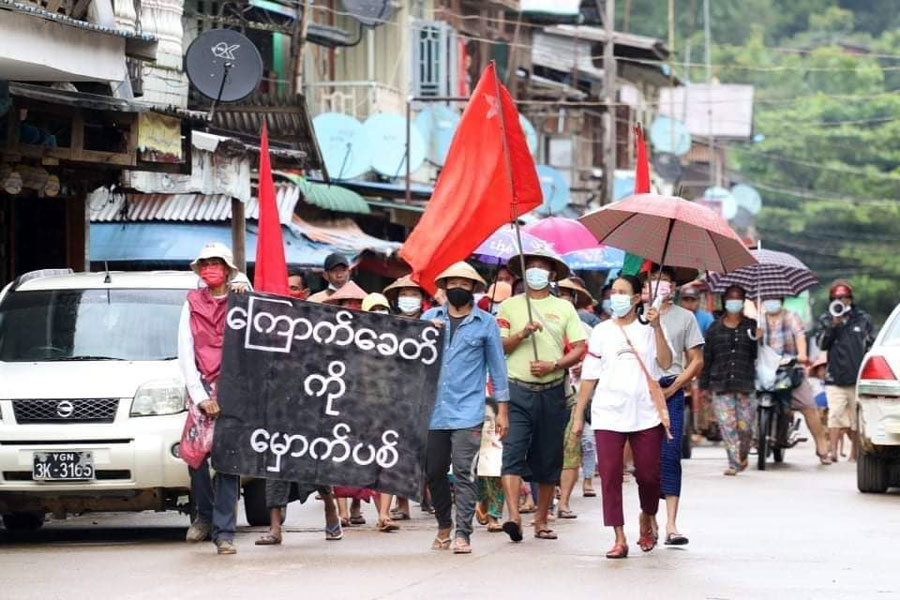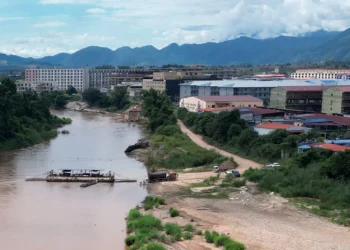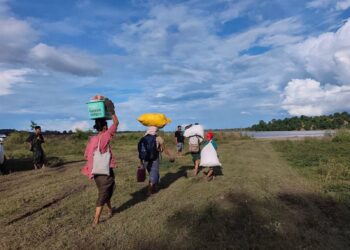
The Myanmar junta’s continuous blocking of the internet in Kachin State’s Hpakant Township and townships in Sagaing Region is increasing security concerns and violating the socio-economic rights of residents, say locals.
The junta cut off internet access in Hpakant, Myanmar’s jade hub, on August 20 and in some of Sagaing Region’s townships on September 14, in an effort to restrict anti-regime communications. Both areas are strongholds of armed resistance against the military regime.
Myanmar’s military and the ethnic armed group the Kachin Independence Army have been fighting since March in northern Myanmar’s Kachin State. In Sagaing Region, civilian resistance fighters have inflicted heavy casualties on junta forces over the past few months.
Mobile and wifi internet services from Myanmar’s three main telecom operators – MPT, Telenor and Ooredoo – were blocked on the afternoon of September 14 in in Kani, Mingin, Yinmabin, Pale, Shwebo and Budalin townships in Sagaing, and in Mogoke and Myingyan townships in Mandalay Region. Access to mobile networks was restored, however.
Myanmar’s military and the ethnic armed group the Kachin Independence Army have been fighting since March in northern Myanmar’s Kachin State. In Sagaing Region, civilian resistance fighters have inflicted heavy casualties on junta forces over the past few months.
Mobile and wifi internet services from Myanmar’s three main telecom operators – MPT, Telenor and Ooredoo – were blocked on the afternoon of September 14 in in Kani, Mingin, Yinmabin, Pale, Shwebo and Budalin townships in Sagaing, and in Mogoke and Myingyan townships in Mandalay Region. Access to mobile networks was restored, however.
Over 1.7 million people live in the above townships, according to General Administration Department statistics from 2019. More than 133,000 people live in Hpakant Township.
Without internet access, rumors about fighting are causing fear among the public, local residents told The Irrawaddy.
“We don’t know what the military situation is outside of our areas or what could happen to us. We are on alert all the time in case we need to flee,” said Ko Aung, a Hpakant resident.
The internet blackout also hampers residents’ access to information regarding the COVID-19 pandemic, as well as vocational learning, and disrupts local businesses as online money transfer services cannot be used.
Ko Aung said that there are “many hurdles” due to the internet blackout in his town. The internet is part of his daily activity and, by missing that, he believes Myanmar is “reverting to the past”.
The lack of information about the security situation is the biggest worry, said residents.
“We live in constant fear and hear rumors of fighting every day,” said Ko Saw, a resident of Kani Township in Sagaing Region.
Daw May, who asked to be identified by a pseudonym, lives in Yinmabin Township, Sagaing Region and said that security is the top concern for locals.
She said that the junta has cut off the internet “to blind civilians and to torture its own people”. On a personal level, she has lost contact with her friends in other parts of the country as social media platforms such as Facebook cannot be accessed.
“We use the internet to share information, especially about security. Many people cannot afford to pay for credit for phone calls,” she said.
The military regime appears to believe that cutting internet access is a way of curbing the activities of local People’s Defense Forces (PDF). However, it is affecting the livelihoods of locals and their survival, Daw May added.
People who support the local PDFs have been sharing information online about junta troop movements in their areas, but were now unable to do so.
Online education and money transfer services, vital for sending money to families and displaced people, are now limited because of the internet blackout.
Digital money transfer services such as K-pay or Wave money can’t be used now, said residents of the townships affected by the blackout.
“The blackouts don’t just impact the PDF’s, but also people studying online, including English and arts classes and handicrafts training. Whatever the reason for the internet blackout, the right to education for young people is being violated,” said Daw May.
Tens of thousands of villagers in Kani and Yinmabin townships have been frequently displaced, due to fighting between PDF’s and junta forces. Without access to internet money transfer services, supplies of food and other items for the displaced are being delayed or not arriving.
The military regime has periodically blocked internet access since their February 1 coup in an effort to prevent the spread of the anti-regime movement. The internet was shut down on the first day of the coup and then the following weekend.
For over 70 days between February and April, the junta imposed partial night-time internet blackouts.
Source THE IRRAWADDY






